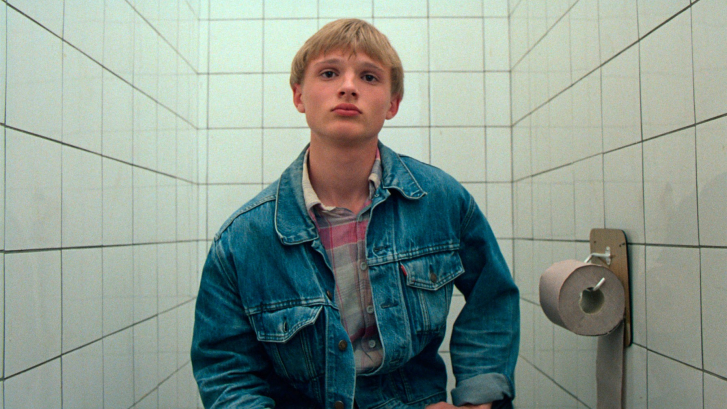Banale Tage

East Berlin, 1978. Thomas is an apprentice toolmaker, Michael is a high school student. Thomas’ father is a labourer, while Michael’s is a dramatic consultant at the Volksbühne theatre. The two teenagers are at odds with their fathers and authorities like the foreman and the school principal. They rebel against the paternalistic system that gives young people no room to develop, and demands conformity. When Michael’s father pronounces a play to be “subversive” and it actually turns out to denounce youth culture, Thomas protests openly. That brings the East German secret police, the Stasi, into play… The film, by the DEFA’s young directors group “DaDaEr”, marked a radical break with the formal and aesthetic DEFA norms. This feature debut by 27-year-old Peter Welz, who had made shorts from scripts by Frank Castorf and Leander Haussmann, tried a new kind of cinematic language – experimental, ironic, burlesque. It is a swansong for East Germany that is as acerbic as it is acrimonious, full of allusions to the absurdity of daily life and the corruption of culture. But contemporary audiences in both East and West weren’t ready for it – despite it receiving a Max Ophüls Prize in 1991.
details
-
Runtime
92 min -
Country
Germany -
Year of Presentation
2024 -
Year of Production
1991 -
Director
Peter Welz -
Cast
Christian Kuchenbuch, Florian Lukas, Kurt Naumann, Jörg Panknin, Ronald M. Schernikau, Bärbel Rolle, Ernst-Georg Schwill, Rolf Peter (= RP) Kahl -
Production Company
-
Berlinale Section
Retrospective -
Berlinale Category
Feature Film